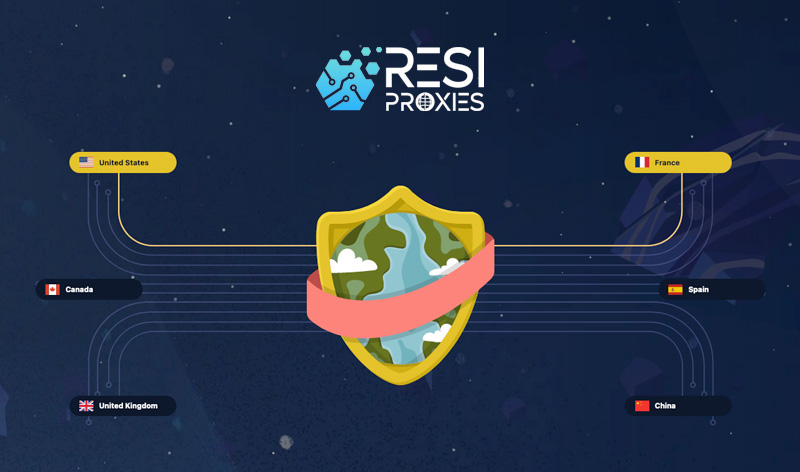
FAQ Residential Proxies
- General Information
- What are residential proxies?
- How To Get Discount Coupons A Complete Guide
- Datacenter Proxies: What They Are, How They Work?
- 5 Key Differences Between Rotating and Static Proxies
- HTTP vs SOCKS5 Proxies: Key Differences and Best Use Cases
- How to Use Proxies for Telegram: Secure Your Chats
- What to consider before buying residential proxies?
- Is it legal to use residential IP addresses?
- How Many Concurrent Sessions(Threads) Can I Use?
- What protocols do your proxies support?
- Can I try your residential proxies?
- What service restrictions do you have?
- Where can I use your proxies?
- Get Started
- How to create an account on your website?
- Where I have my profile details and password change?
- How can I contact you?
- I forgot my password, what can i do?
- Billing
- What methods of payment are available?
- How can I add money in Deposit?
- How to apply discount coupon code?
- How to place an order?
- What can I see in Billing section?
- How can I see my Traffic stats and Deposit balance?
- Do you offer refunds?

HTTP vs SOCKS5 Proxies: Key Differences and Best Use Cases

When it comes to proxies, selecting the right protocol is crucial for achieving your online goals. HTTP and SOCKS5 are two popular proxy protocols, each offering unique advantages and functionalities. While both serve as intermediaries between your device and the internet, they are designed for different tasks and use cases.
In this article, we’ll explore the key differences between HTTP and SOCKS5 proxies, their features, and the best use cases for each protocol. By the end, you’ll have a clear understanding of which proxy type is right for your needs.
What is an HTTP Proxy?
An HTTP proxy is a protocol specifically designed for handling HTTP (Hypertext Transfer Protocol) and HTTPS (Hypertext Transfer Protocol Secure) traffic. It is optimized for web browsing and supports data transmission over the web.
Key Features of HTTP Proxies:
- Application-Specific: HTTP proxies are designed for web-based traffic, making them ideal for websites, APIs, and browsers.
- Header Modification: They can modify HTTP headers, providing enhanced control over requests and responses.
- Support for HTTPS: Secure HTTPS proxies encrypt your data for secure web communication.
Best Use Cases for HTTP Proxies:
- Web Scraping: Collecting data from websites.
- SEO Monitoring: Tracking keyword rankings and competitor data.
- Content Filtering: Blocking or granting access to specific websites.
- Bypassing Geo-Restrictions: Accessing region-locked content.
What is a SOCKS5 Proxy?
SOCKS5 (Socket Secure 5) is a more versatile and advanced proxy protocol that works at a lower level compared to HTTP proxies. Unlike HTTP, SOCKS5 can handle any type of traffic, including TCP (Transmission Control Protocol) and UDP (User Datagram Protocol).
Key Features of SOCKS5 Proxies:
- Protocol-Agnostic: SOCKS5 supports a wide range of traffic types, including web browsing, file transfers, and streaming.
- Enhanced Security: SOCKS5 offers improved authentication and supports encryption, depending on the setup.
- Versatility: It’s suitable for applications beyond web browsing, such as gaming and VoIP.
Best Use Cases for SOCKS5 Proxies:
- Streaming: Accessing geo-blocked streaming platforms like Netflix or Hulu.
- Gaming: Reducing lag and accessing game servers in different regions.
- P2P File Sharing: Supporting peer-to-peer file transfers like torrenting.
- VoIP Services: Ensuring secure and uninterrupted voice calls.
How to Choose Between HTTP and SOCKS5 Proxies
1. Choose HTTP Proxies If You Need:
•A proxy specifically for web browsing or scraping.
•Faster performance for website-related tasks.
•Secure data transmission over HTTPS.
Choose SOCKS5 Proxies If You Need:
•A versatile proxy that supports multiple protocols.
•To handle non-web traffic like streaming, gaming, or VoIP.
•Advanced security features and flexibility for complex tasks.
Why Choose ResiProxies for Your HTTP and SOCKS5 Proxy Needs?
At ResiProxies, we offer premium HTTP and SOCKS5 proxies tailored to your requirements:
• Rotating Residential Proxies: Support both HTTP and SOCKS5 protocols, offering dynamic IP changes for seamless automation and high anonymity. Explore more on our Rotating Residential Proxy Plans.
• Static Residential Proxies: Provide stable connections with HTTP and SOCKS5 support for session-based tasks and consistent IP usage. Learn more on our Static Residential Proxy Plans.
• Global Coverage: Access proxies from multiple locations to bypass geo-restrictions.
• Reliable Performance: Enjoy stable and consistent connections for all your online activities.
FAQs
1. Can I Use HTTP Proxies for Streaming?
HTTP proxies are not ideal for streaming because they are designed specifically for web traffic. SOCKS5 proxies are better suited for handling streaming services.
2. Are SOCKS5 Proxies Secure?
Yes, SOCKS5 proxies offer enhanced security features, including support for authentication. However, they may require additional encryption for highly sensitive tasks.
3. Which Proxy is Faster: HTTP or SOCKS5?
HTTP proxies are generally faster for web-related tasks, while SOCKS5 proxies may be slightly slower due to their versatility.
Conclusion
Both HTTP and SOCKS5 proxies are powerful tools for enhancing your online experience, but their use cases vary. HTTP proxies are ideal for web traffic, while SOCKS5 proxies offer versatility for streaming, gaming, and file sharing.
Start optimizing your online activities with the right proxies from ResiProxies. Whether you need high-speed HTTP proxies or flexible SOCKS5 proxies, we’ve got you covered.
Other FAQ topics

What service restrictions do you have?
General InformationYou should never use our services to defraud, harm, or compromise any entity's integrity.

How Many Concurrent Sessions(Threads) Can I Use?
General InformationThere is no limit to how many threads you can use. Threads are sessions or connections that run simultaneously.

What protocols do your proxies support?
General InformationAll of our proxies support HTTP(S) and SOCKS5 protocols. For a lot of businesses that need to cover a lot of goals and use cases, HTTP proxies are a good option.
Sign Up right now and discover Full Anonymity!
Get instant access to Residential Proxies all over the globe right in our user-friendly dashboard.
- support [at] resiproxies.net
- @resiproxies.net
- @resiproxies.net
- @resiproxies.net
© Copyright © 2025 ResiProxies.net.
All rights reserved.




